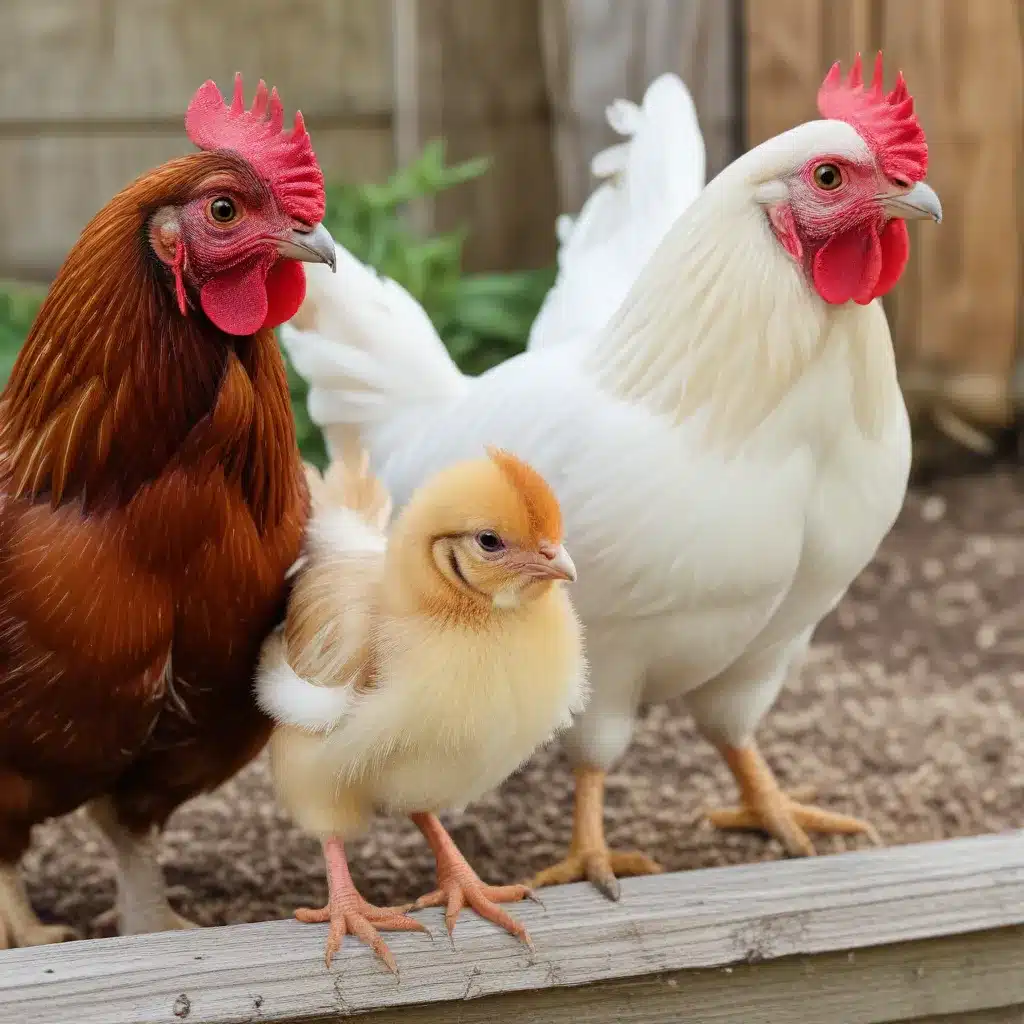
Raising backyard chickens can be a wonderfully rewarding experience, providing fresh eggs, environmental benefits, and a connection to the rhythms of farm life. As a farm educator at Crooked Pines Farm, I’m excited to share my insights on caring for these feathered friends and helping your backyard flock thrive.
Benefits of Backyard Chickens
Backyard chickens offer a myriad of advantages, from improved health and nutrition to positive environmental impacts and cost-savings. Their eggs are nutrient-dense, containing higher levels of vitamins A, D, and B12, as well as heart-healthy omega-3 fatty acids compared to store-bought eggs. Chickens also make excellent composters, transforming kitchen scraps and yard waste into nutrient-rich fertilizer for your garden.
Moreover, raising backyard chickens can be a surprisingly cost-effective endeavor. The initial setup costs for a coop and fencing may seem daunting, but the ongoing expenses for feed, bedding, and healthcare are often offset by the abundance of fresh eggs your hens will provide. With proper care, a small backyard flock can supply a family with a steady supply of eggs year-round.
Preparing for Chickens
Before welcoming your feathered friends, it’s important to ensure you have the necessary infrastructure and supplies in place. The first step is to choose a suitable chicken coop that meets your flock’s needs. Consider factors like size, ventilation, and predator-proofing to create a safe and comfortable environment for your hens.
Next, select the chicken breeds that best suit your goals and preferences. Some popular options for backyard egg production include Orpingtons, Rhode Island Reds, and Australorps, known for their consistent, large brown eggs. If you’re aiming for a variety of colorful eggs, consider breeds like Easter Eggers, which can lay blue, green, or even pink-hued eggs.
Finally, assemble the essential chicken-keeping supplies, such as feeders, waterers, nesting boxes, and a dust bath area. Don’t forget to stock up on high-quality layer feed, grit, and oyster shells to support your hens’ nutritional needs and eggshell formation.
Chicken Care and Feeding
Providing your chickens with a balanced diet and maintaining a clean, well-ventilated coop are crucial for their health and well-being. Offer a layer feed formulated to meet their nutritional requirements, and supplement their diet with scratch grains, fresh vegetables, and occasional protein-rich treats like meal worms or cooked eggs.
Regularly cleaning the coop and replacing the bedding is essential for preventing the buildup of harmful bacteria, ammonia, and parasites. Consider using a deep litter system, where you add new bedding on top of the existing material, only doing a full cleanout every few months. Sprinkle diatomaceous earth and barn lime in the coop to help control mites and lice.
Closely monitor your flock’s health, keeping an eye out for signs of illness or pests. Common issues like scaly leg mites, pasty butt, and Marek’s disease can be addressed with proper treatment and prevention measures.
Egg Production and Collection
To ensure optimal egg production, provide your hens with at least 14 hours of daylight, either naturally or with the use of a coop light during the winter months. Offer a private, comfortable nesting box for each of your hens, and collect eggs regularly to encourage continued laying.
When handling and storing your farm-fresh eggs, remember that they don’t need to be refrigerated right away, as the thick shells and protective bloom help keep them fresh at room temperature for up to a week. For longer-term storage, you can wash the eggs and refrigerate them, which will extend their shelf life for several weeks.
Common Chicken Behaviors
Observing the natural behaviors of your backyard flock can be both fascinating and helpful in understanding their needs. Chickens are social creatures with a well-defined pecking order, and you may notice them roosting together at night and nesting in their preferred spots during the day.
Periodic molting, where chickens shed and regrow their feathers, is a natural process that can temporarily affect egg production. Provide extra protein-rich feeds during this time to support their feather regrowth.
Protecting Chickens
Safeguarding your backyard flock from predators and diseases is essential for their well-being. Invest in a predator-proof coop and run, with secure doors, windows, and fencing that extends underground to deter digging animals. Regularly inspect the coop for any weaknesses or entry points.
Additionally, maintain good biosecurity practices, such as restricting visitor access, disinfecting equipment, and quarantining new additions to your flock. Stay vigilant for signs of parasites or illness, and consult a veterinarian if you have any concerns.
Integrating Chickens into the Backyard
When planning your backyard layout, consider how to incorporate your chickens in a way that complements your overall landscape design. Strategically place the coop and run to maximize access to foraging areas, dust baths, and shady spots. Introduce chicken-friendly plants, such as herbs and leafy greens, that can provide additional nutrition and entertainment for your feathered friends.
Involving children in the care of backyard chickens can be a wonderful educational opportunity, fostering a connection to the natural world and an understanding of where our food comes from. Encourage them to participate in tasks like collecting eggs, providing treats, and observing the chickens’ fascinating behaviors.
The joy of raising backyard chickens extends far beyond the bountiful eggs they provide. By caring for these feathered friends, you’ll gain a deeper appreciation for the rhythms of farm life and the simple pleasures that come with tending to your own flock. With the right preparation and dedication, your backyard chickens will thrive and become a cherished part of your family’s story. For more information on all things chicken-related, be sure to visit the Crooked Pines Farm website at crookedpinesfarm.com.


